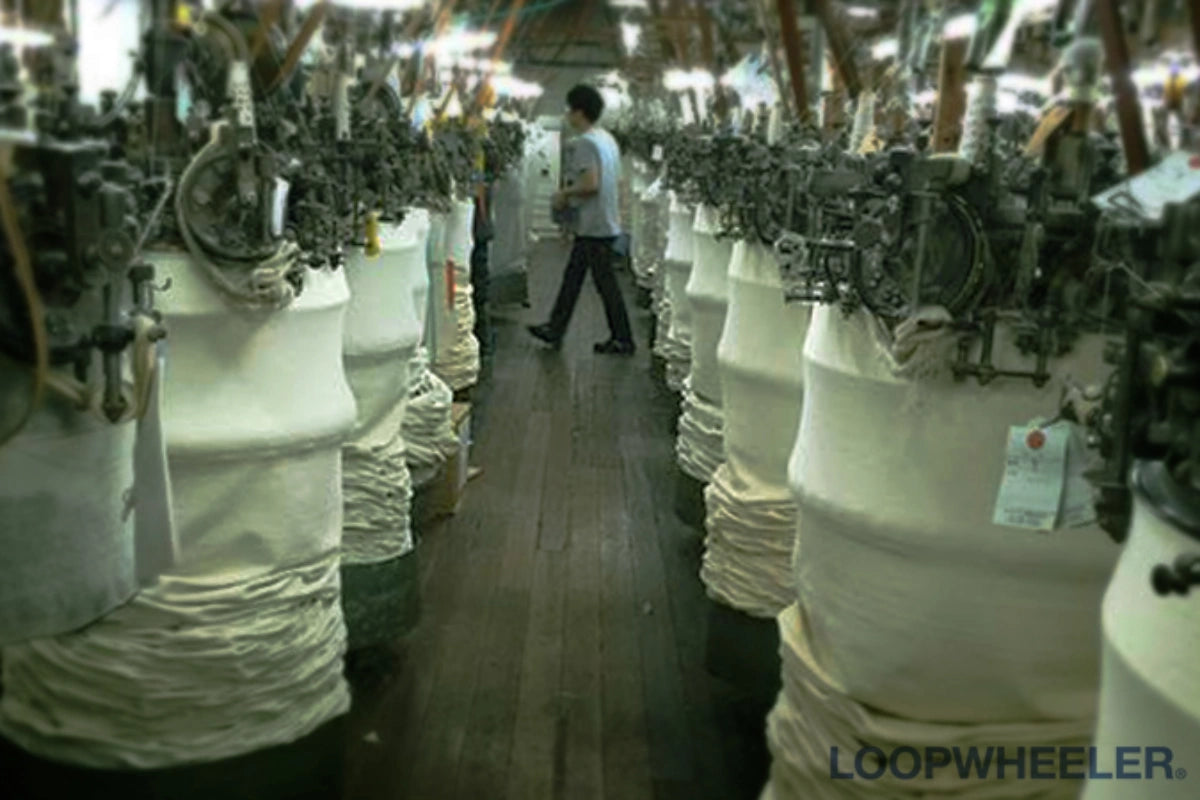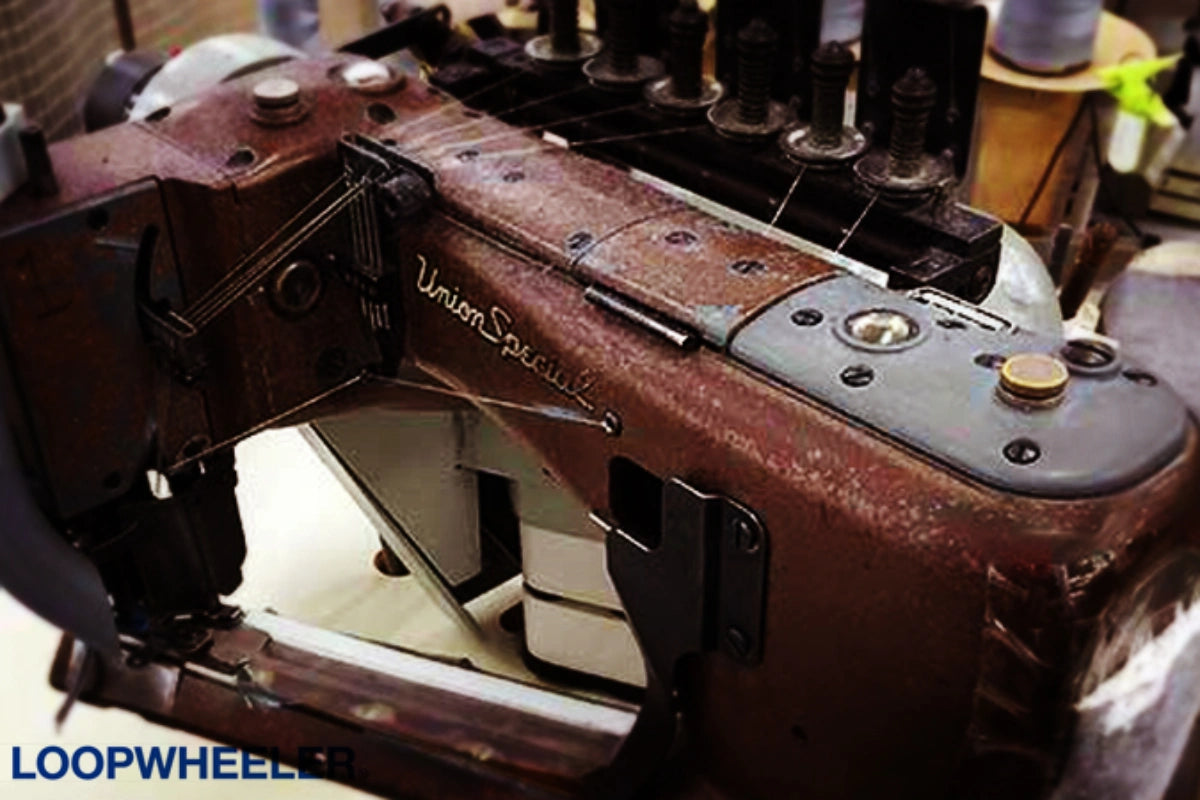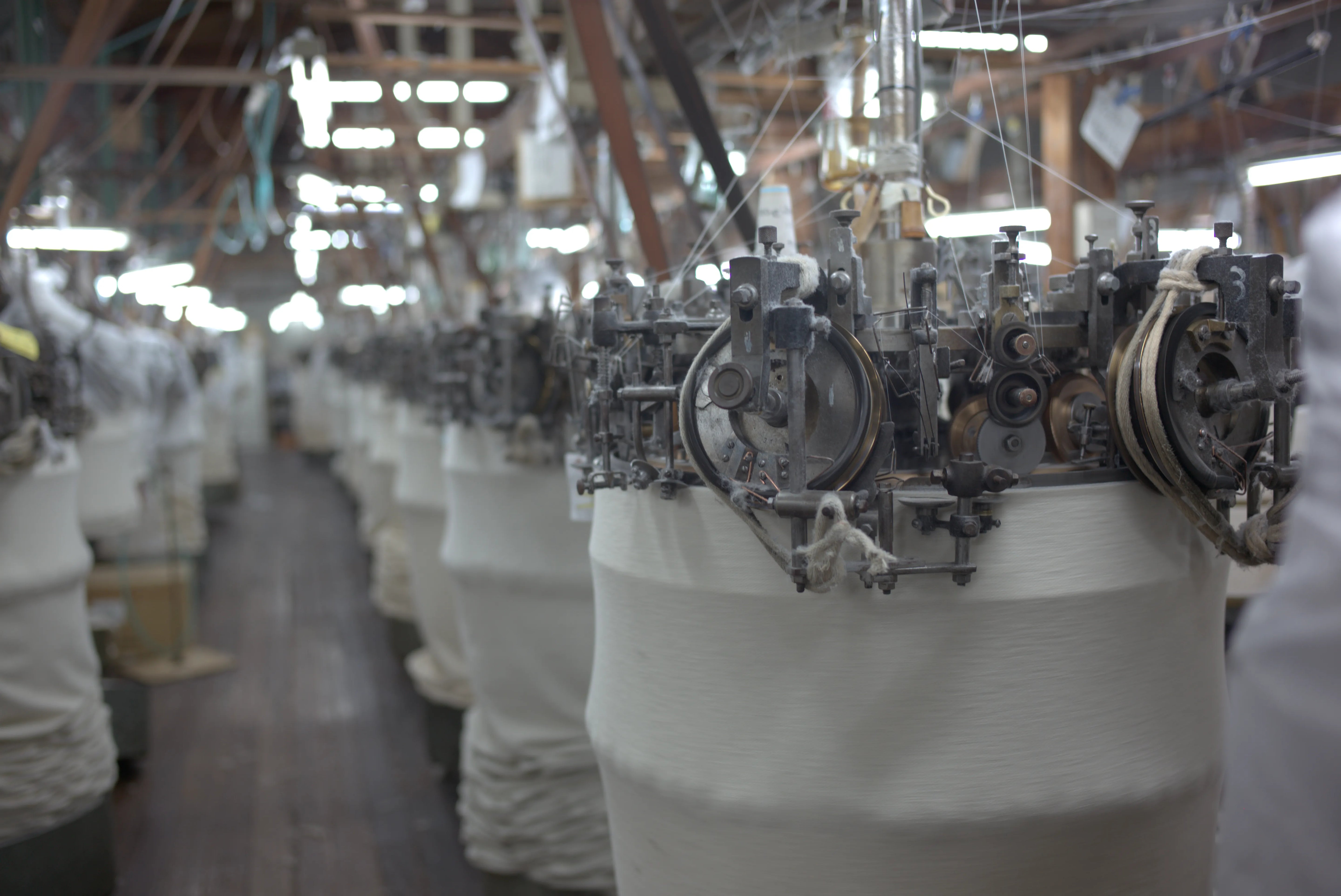The World's Most Authentic Sweatshirt
LOOPWHEELER was founded in 1999 with a mission to create the world’s most authentic sweatshirts. Our sweatshirts are made using only TSURIAMI fabric produced on TSURIAMIKI. Through a combination of Japanese craftsmanship and a relentless pursuit of perfection, our sweatshirts, made entirely in Japan, provide unparalleled comfort and durability.
Our Process
Even today, vintage sweatshirts from the late 1940s to the mid-1960s are cherished by many.
Their enduring quality comes from the fabric made using TSURIAMIKI.
These machines produce only about one meter of fabric per hour, making them highly inefficient by modern standards. Most sweatshirts available today are made with high-speed, mass-production sinker knitting machines.
Today, the only place in the world where TSURIAMIKI are still operational is in Wakayama, Japan.
Knitting
Sewing
Our Team

Knitting
Kanekichi Industries Ltd.
Kanekichi Industries Ltd. is one of only two factories worldwide equipped with the rare TSURIAMIKI. Established in 1920 and based in Wakayama City, this historic company has passed down its skilled craftsmanship through generations. Unlike modern, high-speed, digitally controlled knitting machines, TSURIAMIKI have a simple structure that requires precise adjustments. Achieving the best fabric texture demands techniques honed over many years of experience.
The unique texture and comfort of LOOPWHEELER products are a testament to the meticulous craftsmanship found at Kanekichi Industries Ltd., where every detail is perfected by skilled artisans.

Sewing
Maruwa Textile Industries Co.,LTD
Maruwa Textile Industry Co., Ltd. stands as one of Japan’s leading sewing factories in both technology and scale. Headquartered in Sumida, Tokyo, with its main production line located in Aomori, this factory plays a key role in the creation of LOOPWHEELER products.
The fabrics are knitted on TSURIAMIKI in Wakayama, then sent to the Aomori factory (Aptimaluwa) for cutting and sewing before being shipped as finished products. For items requiring specialized sewing techniques, production is handled at the development studio in Tokyo. From spinning the yarn to the final product, every step is proudly completed within Japan.



















